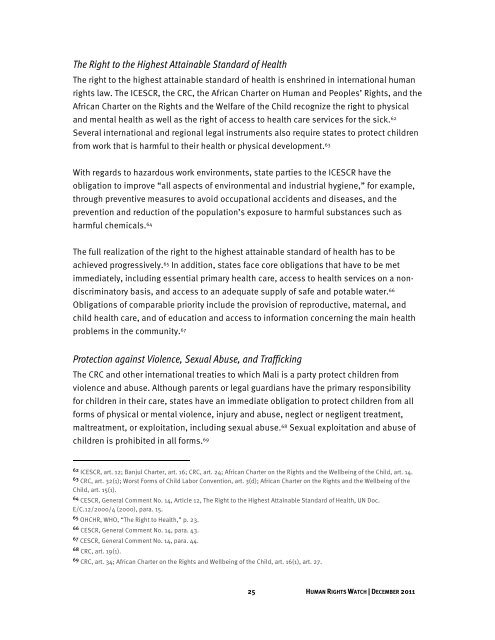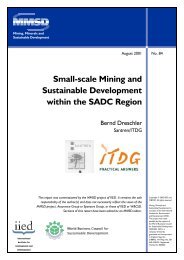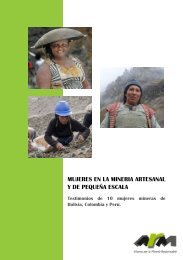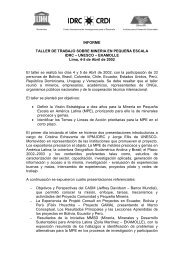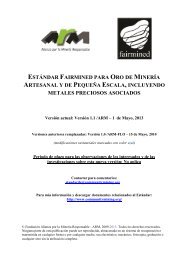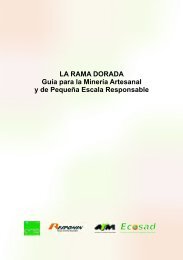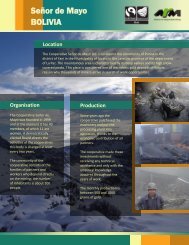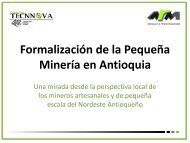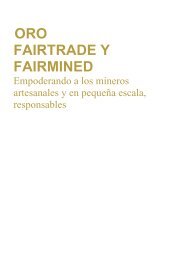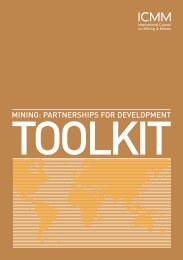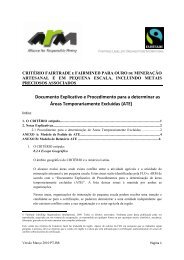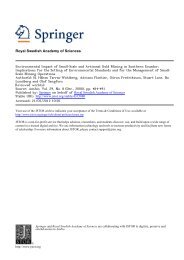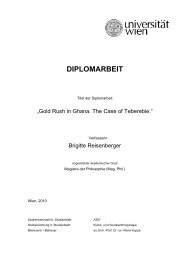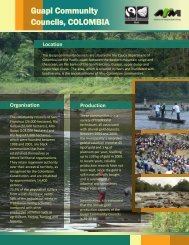A Poisonous Mix - Human Rights Watch
A Poisonous Mix - Human Rights Watch
A Poisonous Mix - Human Rights Watch
You also want an ePaper? Increase the reach of your titles
YUMPU automatically turns print PDFs into web optimized ePapers that Google loves.
The Right to the Highest Attainable Standard of Health<br />
The right to the highest attainable standard of health is enshrined in international human<br />
rights law. The ICESCR, the CRC, the African Charter on <strong>Human</strong> and Peoples’ <strong>Rights</strong>, and the<br />
African Charter on the <strong>Rights</strong> and the Welfare of the Child recognize the right to physical<br />
and mental health as well as the right of access to health care services for the sick. 62<br />
Several international and regional legal instruments also require states to protect children<br />
from work that is harmful to their health or physical development. 63<br />
With regards to hazardous work environments, state parties to the ICESCR have the<br />
obligation to improve “all aspects of environmental and industrial hygiene,” for example,<br />
through preventive measures to avoid occupational accidents and diseases, and the<br />
prevention and reduction of the population’s exposure to harmful substances such as<br />
harmful chemicals. 64<br />
The full realization of the right to the highest attainable standard of health has to be<br />
achieved progressively. 65 In addition, states face core obligations that have to be met<br />
immediately, including essential primary health care, access to health services on a nondiscriminatory<br />
basis, and access to an adequate supply of safe and potable water. 66<br />
Obligations of comparable priority include the provision of reproductive, maternal, and<br />
child health care, and of education and access to information concerning the main health<br />
problems in the community. 67<br />
Protection against Violence, Sexual Abuse, and Trafficking<br />
The CRC and other international treaties to which Mali is a party protect children from<br />
violence and abuse. Although parents or legal guardians have the primary responsibility<br />
for children in their care, states have an immediate obligation to protect children from all<br />
forms of physical or mental violence, injury and abuse, neglect or negligent treatment,<br />
maltreatment, or exploitation, including sexual abuse. 68 Sexual exploitation and abuse of<br />
children is prohibited in all forms. 69<br />
62 ICESCR, art. 12; Banjul Charter, art. 16; CRC, art. 24; African Charter on the <strong>Rights</strong> and the Wellbeing of the Child, art. 14.<br />
63 CRC, art. 32(1); Worst Forms of Child Labor Convention, art. 3(d); African Charter on the <strong>Rights</strong> and the Wellbeing of the<br />
Child, art. 15(1).<br />
64 CESCR, General Comment No. 14, Article 12, The Right to the Highest Attainable Standard of Health, UN Doc.<br />
E/C.12/2000/4 (2000), para. 15.<br />
65 OHCHR, WHO, “The Right to Health,” p. 23.<br />
66 CESCR, General Comment No. 14, para. 43.<br />
67 CESCR, General Comment No. 14, para. 44.<br />
68 CRC, art. 19(1).<br />
69 CRC, art. 34; African Charter on the <strong>Rights</strong> and Wellbeing of the Child, art. 16(1), art. 27.<br />
25 HUMAN RIGHTS WATCH | DECEMBER 2011


